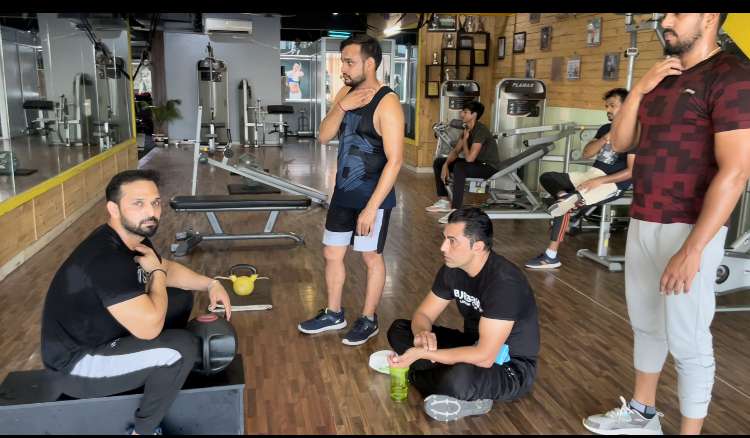When you work out, you want to make sure that you’re not working out too hard. While you want to push yourself as hard as possible, you can actually end up doing yourself harm if you overdo it. Here are some signs that your heart rate may be too high for the exercise that you’re doing and what to do about it.
Experts recommend getting 30 minutes of exercise at least five days a week to stay healthy and fit, but the intensity of your workout can affect how many calories you burn, how much fat you lose, and even how fast your heart beats—which can be dangerous if you push yourself too hard. Here’s how to know if you’re working out too hard, plus tips on how to make your workouts safer and more effective!
What Is The Aerobic Heart Rate?

The aerobic heart rate is the number of times your heart beats per minute while you are exercising. You can use a calculator to figure out your aerobic heart rate zone. The zone is different for everyone and is based on factors such as age and intensity of the workout. Generally, you want to keep your heart rate in the aerobic zone for most of your workout. This means that you are working hard enough to get a good workout, but not so hard that you are putting your body under too much stress.
Why Knowing Your AHR Is Important
It’s important to know your aerobic heart rate (AHR) for a few reasons. First, if you’re working out too hard, you could be putting your health at risk. Second, if you’re not working hard enough, you won’t see the results you want. Third, by understanding your AHR, you can better tailor your workouts to ensure they’re effective. Fourth, tracking your AHR can help you gauge your fitness level and see improvements over time.
How To Know If You Are Working Out Too Hard

We all want to get the most out of our workouts, but sometimes we can push ourselves too hard without even realizing it. One way to tell if you’re working out too hard is by monitoring your heart rate. If your heart rate is consistently above your aerobic threshold, it could be an indication that you are over-exerting yourself. Additionally, if you experience shortness of breath or chest pain during or after exercise, these are also signs that you should back off a bit.
Monitoring Maximum Aerobic Exertion
Can exercise cause fast heart rate? In some cases, yes. If you are working out at or near your maximum aerobic exertion, your heart rate will be high. You can use a calculator like the one from Garmin to figure out what your maximum aerobic exertion is based on your age and fitness level.
After exercise, your heart rate should return to normal within a few minutes. If it takes longer than that, you may be overdoing it.
Monitoring Fatigue Level During Exercise

It’s important to monitor your fatigue level during exercise, especially if you are new to working out or are pushing yourself harder than usual. One way to do this is by using an aerobic heart rate zone calculator, which can help you find your ideal heart rate range. You can also check your after-exercise heart rate recovery time and compare it to an exercise heart rate age chart. If your recovery time is significantly slower than average, it could be a sign that you are overtraining.
Other Factors To Consider When Measuring AHR
In addition to using a device like a Garmin to measure your AHR, there are other factors you should consider when measuring how hard you’re working out. These include how quickly you’re breathing, how sweaty you are, and how tired you feel afterwards. Plus, everyone’s AHR is different, so it’s important to know what’s normal for you.
Helpful Tips For Staying Fit This Year
- One way to help make sure you’re not overdoing it when working out is to monitor your heart rate.
- A great way to do this is with a fitness tracker, like the Garmin Forerunner 245.
- The Forerunner 245 uses your age, weight, and gender to estimate your maximum heart rate, and then provides real-time feedback on how hard you’re working.
- If you’re exceeding your max heart rate, the watch will warn you that you need to slow down or stop.
- Monitoring your workouts can also give you a good idea of what type of exercise routine might be best for you based on what types of exercises make up the majority of your activity.
- In general, the most important thing is to listen to your body!

